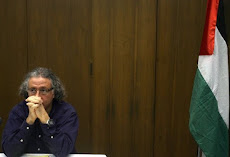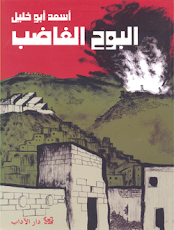This is an initiative by world Muslim scholars released the other day to combat ideologically and Islamically the record and understanding of ISIS. This is the English version but I have read and am referring to the Arabic version. Here are my concerns:
1) Notice a glaring omission: no Saudi clerics or religious scholars signed this letter. It is clear that the religious establishment in Saudi Arabia, which exercises undue influence due to wealth of the regime, has decided that it wants no part in this initiative. Is this an appeasement of ISIS by the Saudi religious establishment or somethings else?
2) Some of the arguments are rather shallow: like to say that the ISIS folks don't have good understanding of Arabic. As if the problem of ISIS is merely technical. But their pointing out to Arabic grammar mistakes in speeches by ISIS is rather good. The arrogant religious self-confidence of ISIS as well as their terrorist infrastructure should be shaken and dismantled.
3) Their point that verses or religious texts should not be taken out of context is well-taken but also applies to Western writers and pundits on Islam, especially those of the Islamophobe variety.
4) It is good that they remind ISIS kooks that most Muslim conversion in history was not by force (as older Orientalists used to maintain).
5) It is good that they remind them of imperssiblity of killing innocent people but they should have leaved that charge as well toward US, Russia and all Western forces fighting in Syria. Furthermore, why have those religious scholars been silent about Arab regime's murder of innocent people? If they care about innocent lives they should have spoken earlier for us to believe their credibility.
6) On Jihad: that section bothers me. It begins by saying that all Muslims "see in Jihad a great virtue". I am not sure that is true. There are many Muslims who see peace and prosperity and justice as greater in value than Jihad. The section then proceeds to remind ISIS that there are two kind of Jihad's in Islam. That is well-taken but they should have said the obvious: that ISIS and Western media and some Western experts basically have the same (mis)understanding of Jihad in Islam. And rather than nullifying the notion of Jihad in the 21st century, the section asserts its relevance and then remind ISIS that Jihad against fellow Muslims is not permissible, thereby implying that Jihad against non-Muslims is still permissible. The worst part is at the end of this section whey the religious scholars say: "Truthfully courage, willingness to sacrifice and intent to perform Jihad is seen in you, and no one--friend or foe--can deny that if sincere". To imply the ancient tribal notion of courage about a bunch of terrorists defeats the whole purpose of this letter. (Worse, the English version's translation is dishonest: they use the word "fearless" instead of "courage", which is in the Arabic original. And the section basically state that the signatories agree on the necessity of Jihad but disagree on the application by ISIS. This grants legitimacy for ISIS and other terrorists who kill in the name of Islam.
7) The letter condemns the killing of hostages and of Christians by ISIS but says nothing about the murder of Shi`ites and Alawites.
8) On page 14, they mention that they have distributed the books of Muhammad ibn `Abdul-Wahab but they don't say one way or another about that.
9) There is a section against Takfir but they don't seem to say a word about the takfir of Shi`ites and Alawites or of unbelievers. Where does those religious scholars stand on this?
10) The section on women is most weak and the signatories don't even dare say what their view is of the rights of women.
11) Section 21 is terrible: when they argue against rebelling against the rulers. Here, the intention of the scholars is revealed: not so much to denounce and reject the terrorism of ISIS but to preserve the current regimes, many of which also practice terrorism.
12)
1) Notice a glaring omission: no Saudi clerics or religious scholars signed this letter. It is clear that the religious establishment in Saudi Arabia, which exercises undue influence due to wealth of the regime, has decided that it wants no part in this initiative. Is this an appeasement of ISIS by the Saudi religious establishment or somethings else?
2) Some of the arguments are rather shallow: like to say that the ISIS folks don't have good understanding of Arabic. As if the problem of ISIS is merely technical. But their pointing out to Arabic grammar mistakes in speeches by ISIS is rather good. The arrogant religious self-confidence of ISIS as well as their terrorist infrastructure should be shaken and dismantled.
3) Their point that verses or religious texts should not be taken out of context is well-taken but also applies to Western writers and pundits on Islam, especially those of the Islamophobe variety.
4) It is good that they remind ISIS kooks that most Muslim conversion in history was not by force (as older Orientalists used to maintain).
5) It is good that they remind them of imperssiblity of killing innocent people but they should have leaved that charge as well toward US, Russia and all Western forces fighting in Syria. Furthermore, why have those religious scholars been silent about Arab regime's murder of innocent people? If they care about innocent lives they should have spoken earlier for us to believe their credibility.
6) On Jihad: that section bothers me. It begins by saying that all Muslims "see in Jihad a great virtue". I am not sure that is true. There are many Muslims who see peace and prosperity and justice as greater in value than Jihad. The section then proceeds to remind ISIS that there are two kind of Jihad's in Islam. That is well-taken but they should have said the obvious: that ISIS and Western media and some Western experts basically have the same (mis)understanding of Jihad in Islam. And rather than nullifying the notion of Jihad in the 21st century, the section asserts its relevance and then remind ISIS that Jihad against fellow Muslims is not permissible, thereby implying that Jihad against non-Muslims is still permissible. The worst part is at the end of this section whey the religious scholars say: "Truthfully courage, willingness to sacrifice and intent to perform Jihad is seen in you, and no one--friend or foe--can deny that if sincere". To imply the ancient tribal notion of courage about a bunch of terrorists defeats the whole purpose of this letter. (Worse, the English version's translation is dishonest: they use the word "fearless" instead of "courage", which is in the Arabic original. And the section basically state that the signatories agree on the necessity of Jihad but disagree on the application by ISIS. This grants legitimacy for ISIS and other terrorists who kill in the name of Islam.
7) The letter condemns the killing of hostages and of Christians by ISIS but says nothing about the murder of Shi`ites and Alawites.
8) On page 14, they mention that they have distributed the books of Muhammad ibn `Abdul-Wahab but they don't say one way or another about that.
9) There is a section against Takfir but they don't seem to say a word about the takfir of Shi`ites and Alawites or of unbelievers. Where does those religious scholars stand on this?
10) The section on women is most weak and the signatories don't even dare say what their view is of the rights of women.
11) Section 21 is terrible: when they argue against rebelling against the rulers. Here, the intention of the scholars is revealed: not so much to denounce and reject the terrorism of ISIS but to preserve the current regimes, many of which also practice terrorism.
12)








